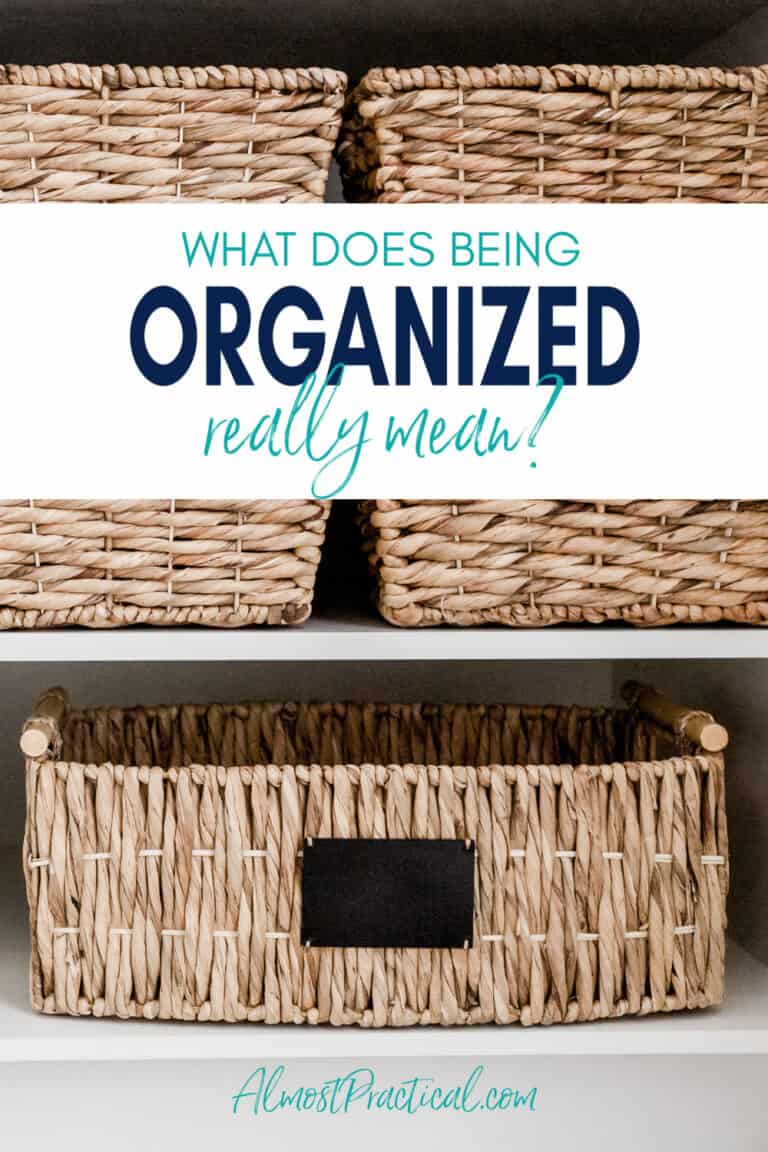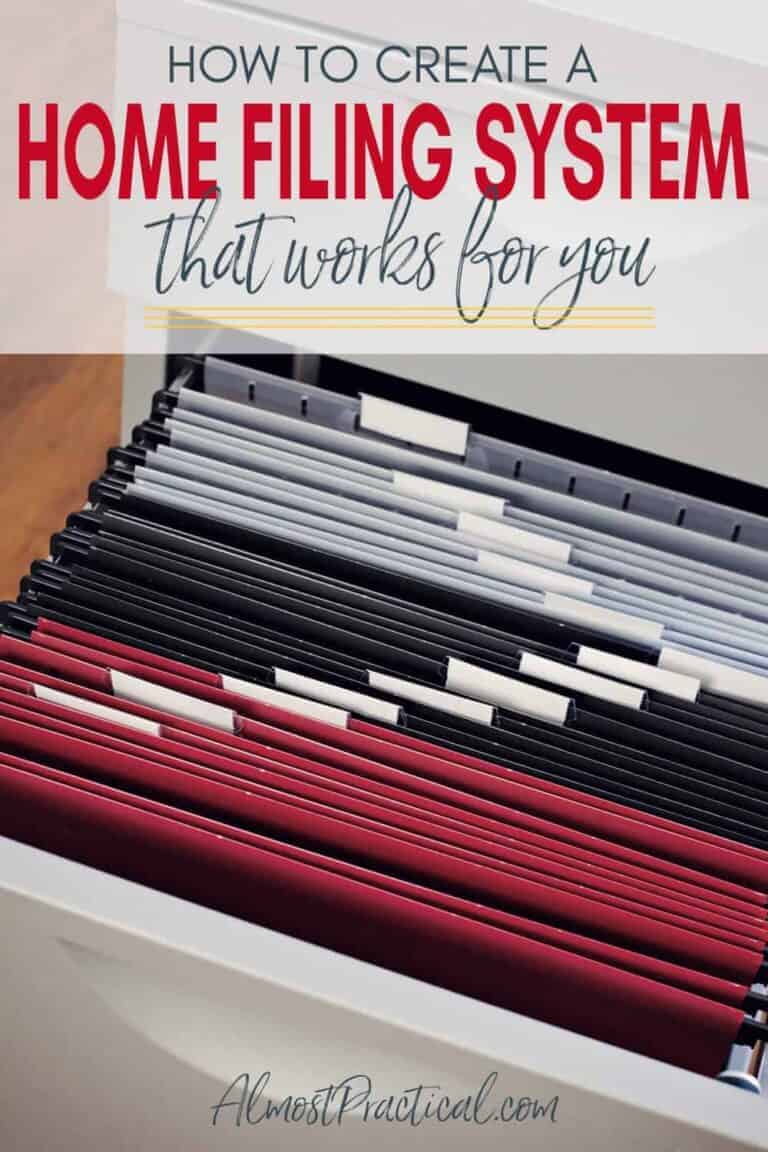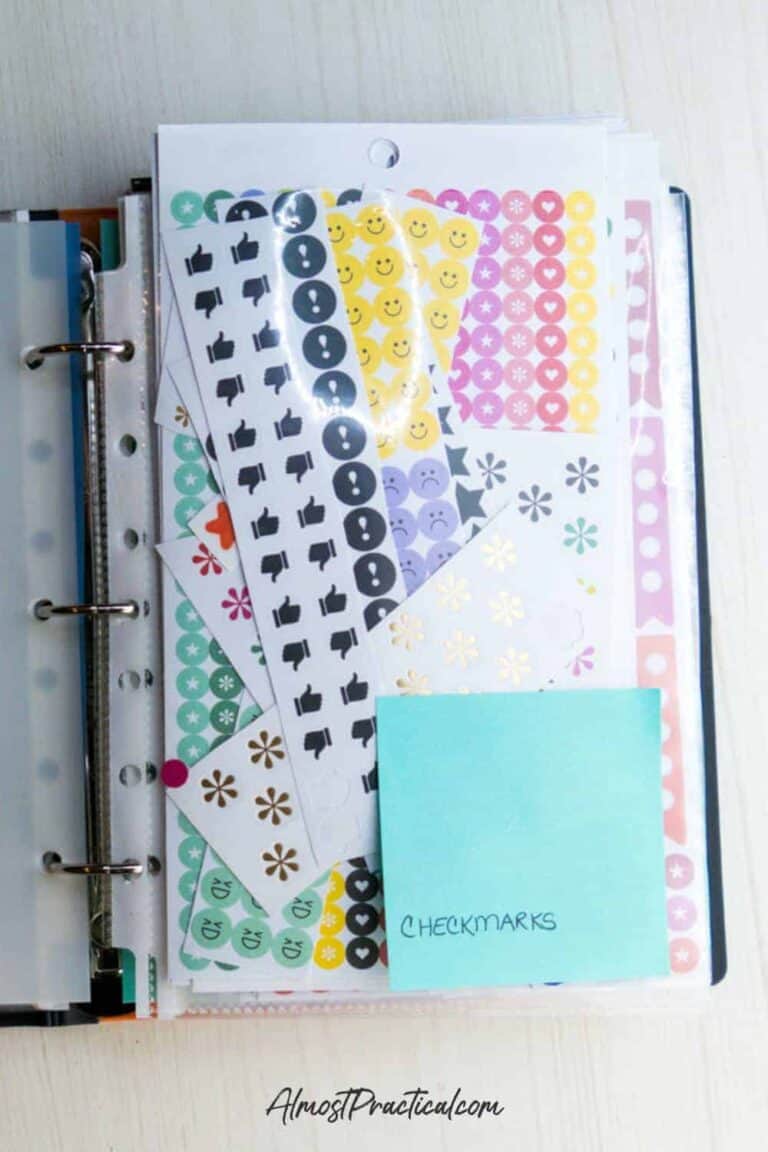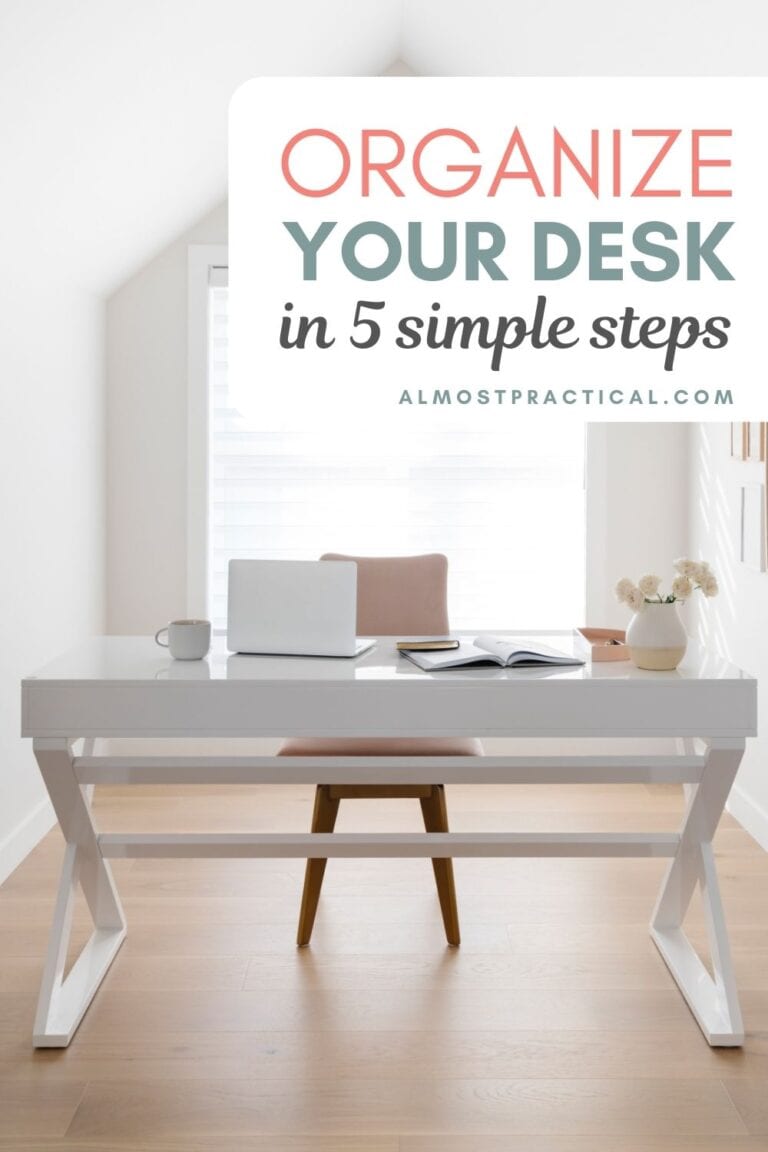9 Organizing Tips to Help Clear the Clutter
This post may contain affiliate links which means I make a commission if you shop through my links.
Disclosure Policy
Is disorganization getting in your way of achieving the things that you want? These organizing tips can help.
It happens to even the most organized of people.
Clutter just starts creeping in.
When there are too many things around me, I get overwhelmed.
And that’s when I start to miss the important things – appointments, due dates, events.
Other things in my life spiral out of control.
But when my home and my space is organized, I feel more confident and clear.
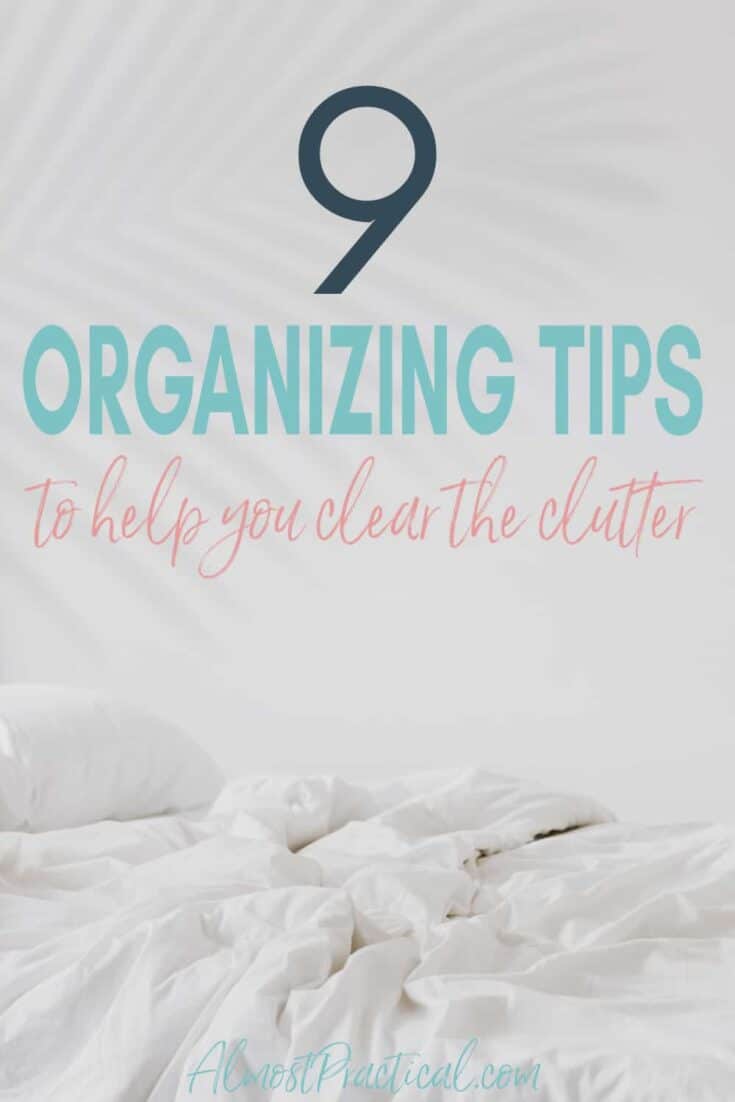
Disorganization Goes Beyond the Stuff
As you can see, being disorganized goes beyond the clutter.
Not only does it cause you to lose time looking for the things you need but it also creates stress and even moments of panic when you can’t find something.
Eventually, not being organized will cost you money as well.
You may end up owing bank fees because you paid a bill late. Or you may end up buying a replacement for something because you can’t find it.
I’ve been there and done that.
Why Do We Get Disorganized?
In my experience – disorganization happens because:
- We don’t allow ourselves enough time in our daily schedules to organize our stuff.
- We don’t have good systems in place – so that we know when to do tasks and where to put things.
If you are sick and tired of disorganization getting in the way of your full potential (yes, it does hold you back) – then it is time to make some changes.
Best Tips to Overcome Disorganization
Here are some organizing tips that you can follow to get started on your organizing journey this year.
Tip 1: Start With Your Biggest Pain Point
Sometimes the hardest part about organizing is knowing where to start.
No matter where you look – there is work to be done.
Your email inbox may be out of control.
Photos may have been trapped in your computer for years.
The kitchen counters might be overflowing.
Or the hall closet may be stuffed to the point where the doors don’t shut.
What do you work on first?
My philosophy is to tackle your biggest pain point.
What is costing you the most?
This “cost” can be time or money or even relationships.
If you can organize something to fix that pain point, you will alleviate some stress and open up your schedule to work on the next area.
Tip 2: Use a Project Notebook to Track Your Progress
Whenever you start an organizing project, it is a great idea to use a notebook to keep track of your tasks and your progress.
This really helps you seamlessly pick up where you left off each day.
When I finish an organizing session, I leave a little note to myself just in case I don’t get back to the project for a while.
This way I can refresh my train of thought and move ahead.
Your project book could be just a plain spiral bound notebook or it could be something that you keep online in an something like Evernote or Apple Notes.
Whatever you choose, just make sure that you know where it is and that you refer to it often.
Tip 3: Make a Plan
Use your project notebook or list to make a plan.
Before you dive into your organizing project – write up a plan.
Make sure your plan addresses the following questions:
- What is your end goal?
- When should it be complete?
- How many hours will the whole project take?
- How much time will you work on it each day or week?
- Are there parts of the project that you can delegate to other family members or colleagues?
- Do you need any supplies to complete the project? When will you get these?
Be as detailed as possible.
Tip 4: Create Checklists
Using your plan, create a checklist so you know what to do next.
Break it down into small baby steps.
Try to make each item on your list something small enough that you can accomplish in one session.
You can keep this list in your project notebook or use an app like Todoist to keep you on track.
Tip 5: Create Time to Organize On Your Calendar
Once your plan is in place and your checklist is made, carve out time in your schedule to work on your tasks.
The only way to make progress is to make consistent effort.
So make sure you work on organization on a regular basis.
This can be every day or every week – but just be sure to put it on your calendar – and stick to it!
Tip 6: Document Your Systems
It is not enough to organize things once.
To STAY organized, you need to document your systems.
Basically, you are creating a map that you will follow when dealing with similar information or stuff in the future.
For example, suppose you file away your tax information – either online or offline.
Then during the year, you get another tax document – but you can’t remember where you filed the original stuff, so you create a new file put this new document in a different location.
Now your tax information is all over the place and you are once again disorganized.
When you organize something – it can be papers or things or information – make sure you document your system in your project notebook.
Basically, you are creating an organizing cheat sheet for yourself.
Tip 7: Take Before and After Pictures
A picture is worth a thousand words.
So why not take photos of your organizing progress and add them to your project notebook?
If anything, the after you declutter pictures might motivate you to tackle a new project.
These pictures can also help you to document your systems.
Tip 8: Schedule Time for Daily Maintenance
To keep things organized, you can’t just do it once and forget it.
You need to do the organizing on a regular basis.
Clean your desk, clean out your inbox, sweep the floor, file your documents – you get the idea.
Here are 10 organizing tasks that you should do daily.
But depending on your unique situation, there will probably be more.
So, book time into your schedule every. single. day. to work on keeping the clutter away.
Tip 9: Reward Yourself for a Job Well Done
Don’t forget to give yourself a pat on the back when you complete your projects.
This can be a reward can also serve as motivation to get the job done.
Tell yourself that once you finish organizing you will treat yourself with that thing (whatever it might be – a new something, dinner out, or even just some time to relax).
You deserve it!
The Last Thing You Need to Know About Decluttering
Organizing is very personal.
What works for one person may not work for another.
I hope that you will use the ideas on this website to start with your biggest pain point and come up with plans, systems, and a way to document it all that work with the way you think.
Please click here to subscribe to my Organizing Newsletter to get my latest posts, resources, and thoughts directly in your inbox.
Happy Organizing!



